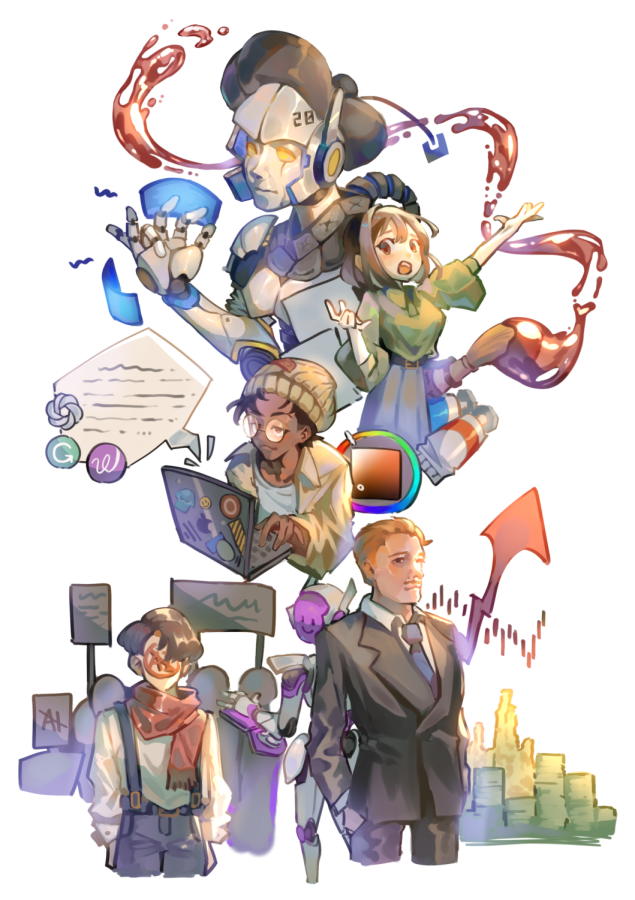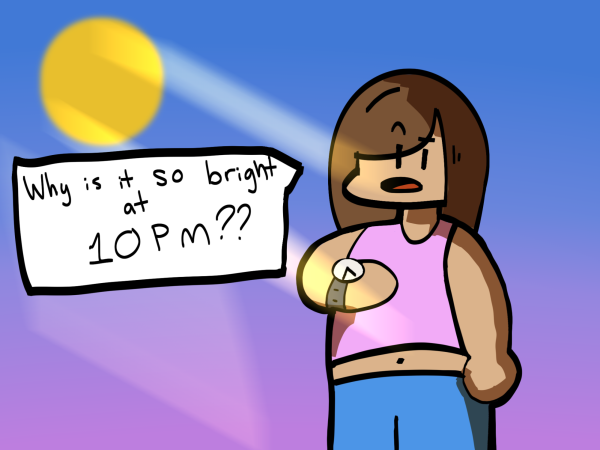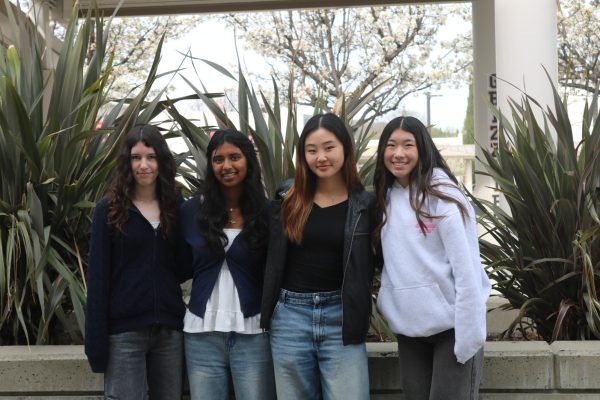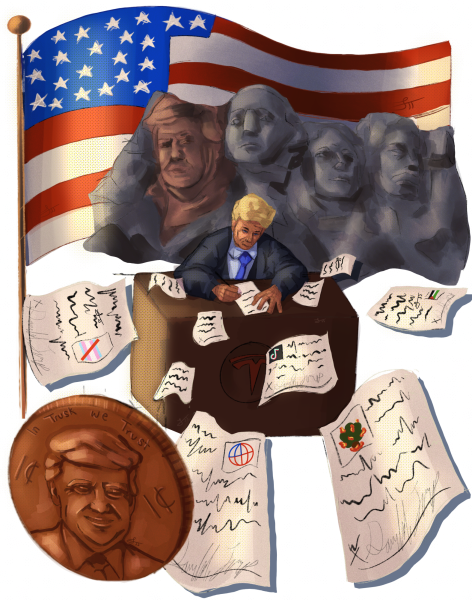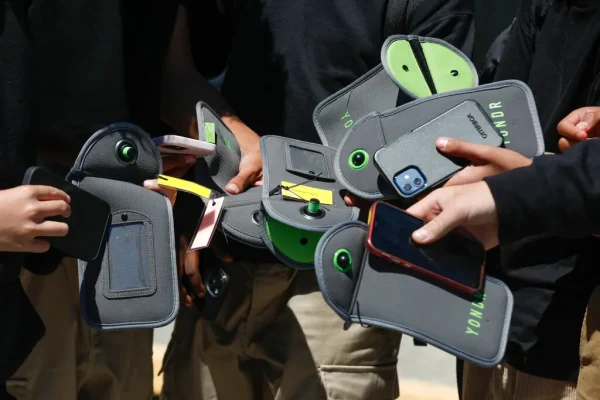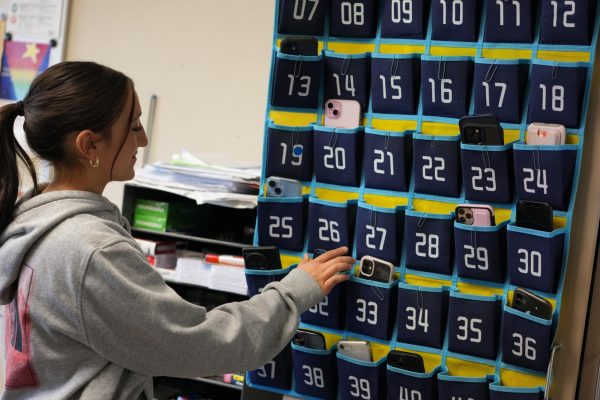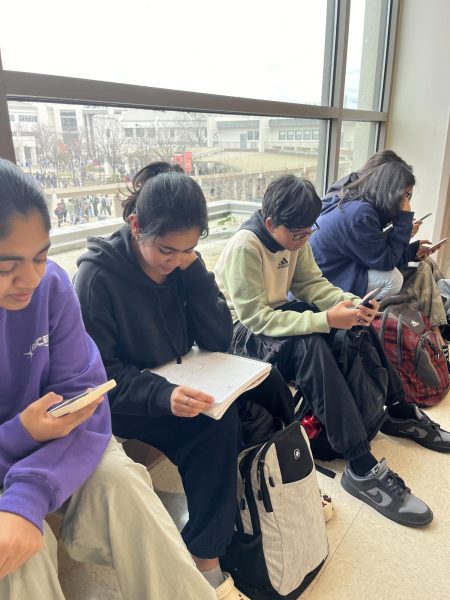It’s AI’s future and we’re all just living in it
New Artificial Intelligence takes the world by storm
AI is changing the way the world operates, and its future is still unknown.
The future is becoming more unknown as technology and science continue to develop.
Artificial intelligence, more commonly known as AI, is a type of technology that mimics human intelligence.
AI has been in development for about 70 years, but what has recently rose to fame is a specific AI called ChatGPT.
Even though AI seems to be the wave of the future, just as the internet was about 25 years ago, not everyone views this as a positive development.
“AI will lead to an increasing amount of automation, it causes a lesser need for human resources,” sophomore Jason Damonte, who is interested in AI, said. “So it can lead to a lot of problems if we don’t manage the transition well.”
There are different types of AI, but one of the most commonly known and currently the most complex type is called a neural network. A popular implementation of this is in ChatGPT, which is made up of multiple neural nets to be as complex as it is.
Neural networks are a type of machine learning process that uses neurons or interconnected nodes online and it mimics the human brain and performs tasks by analyzing examples.
They attempt to solve complicated problems that humans cannot solve with greater accuracy. For example, ChatGPT can summarize entire texts in milliseconds compared to the minutes it may take a human.
But many people have already started experiencing problems with AI related to school and jobs. Many schools have enforced academic integrity much more after AIs have been used by students to cheat on homework, tests and essays.
With ChatGPT being banned on district Wi-Fi, many believe it is because of the fear of cheating. But Cal High Principal Demetrius Ball said it is because administrators are still testing it to learn the best ways to use it as an educational tool.
“[With AI], we can get away from the traditional grading as an opportunity to make grades meaningful,” Ball said. “Your grade shouldn’t reflect what extra opportunities you may have, such as paying extra for a tutor to do your homework, and ChatGPT could make up those differences.”
Many people have also started fearing being replaced in future jobs as further development of AI continues. ChatGPT has passed the legal bar exam and medical exams. In the past, people thought they were irreplaceable by technology in certain jobs. But as AI continues to develop, it is hard to say what will happen.
While there are downsides, AI opens up doors to study and teach more about technology by allowing the education systems to develop.
“It’s amazing how powerful something like that [AI] can be,” said Sean Raser, who teaches Cal’s AP Computer Science Principles (CSP) class. “It can be very helpful for educational purposes. Students can also use it for plagiarizing and coming up with things they didn’t do, but I think it can be used for a lot of good.”
Because of the cheating aspect of chat bots, many teachers are developing assessments and assignments that cannot be created as easily by AI.
Raser thinks AI will be heavily present in the future and is looking forward to seeing how it integrates into classrooms, while still being mindful of the cheating aspect of using it.
Many artists fear for their jobs as AI continues to develop and creates art taken from different artists’ pieces to create similar works. This may end up being especially harmful when having to identify real versus stolen art.
Another big development that can be seen as controversial is the further development of AI tools for CGI and human bots.
The new CGI is extremely advanced, helping with fast motion in film and making movies more realistic overall.
“There is AI that can detect voices and faces, and this can really help in [different professions],” sophomore Aswath Subramanian said. “For example, it is really well used in the film industry, especially for [things] where they need to attract face motion.”
On the negative side, it has become so realistic that many people are being accused of being CGI bots. It will soon be extremely difficult to prove that a person is actually human once these resources develop further.
“I am worried about the fact that fake videos or non-existing and good-looking people are created to scam other people,” said Anh Nguyen, who teaches Cal’s AP Computer Science A (CSA) and AP CSP classes.
In the age of catfishing and societal pressures because of the prevalence of social media, these AIs can be very harmful to society and mental health because videos can be created of people engaged in activities they’re not actually doing.
As AI becomes smarter, many things like Completely Automated Public Turing to tell Computers and Humans Apart (CAPTCHA) must develop. Every few years, these AIs learn more and more and have started to pass many of these tests with high rates. This development adds to it being harder to distinguish humans from computers.
Damonte explained that AIs are the automation of a mind that is able to adjust. As it continues to develop, humans gain both a better and lesser understanding of AIs. People gain an understanding of what AI is, but at the same time, it becomes more difficult to understand how the more complex AIs work.
Neural network algorithms used by ChatGPT are like a black box; most people do not currently understand how it computes certain information because they can’t see the coding and what’s in it.
Damonte also explained how there are ways to map how neural networks process, but as the nets get more complex, the harder it becomes to actually understand how they truly work.
As people move forward, many will have to work harder to prove their worth. Whether it’s artists trying to prove their artwork is authentic or teachers needing to be more creative with assessments they’re providing students, people might find the need to prove that they actually exist.
“I think that it’s the future,” sophomore Flora Dixit said. “It can’t be avoided.”
While AI is still developing, people are slowly starting to be able to predict how the future will look as we see how smart these artificial intelligence devices are. They continue to prove people wrong about our past thoughts on how technology will end up taking over our lives.
But only time will tell what is really going to happen.
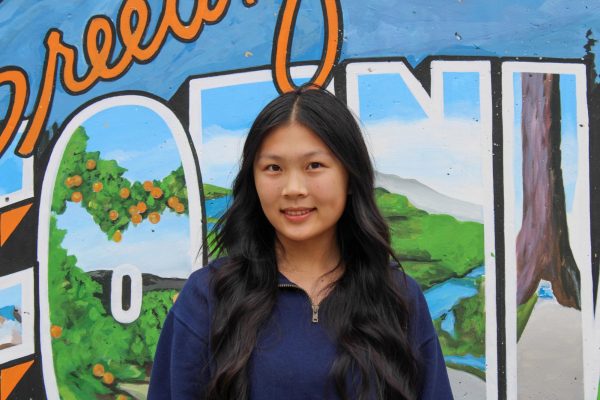
Senior Yining Xie is a Managing Editor for the Californian and has been on staff for three years. She is excited to work more on the design and layout...
